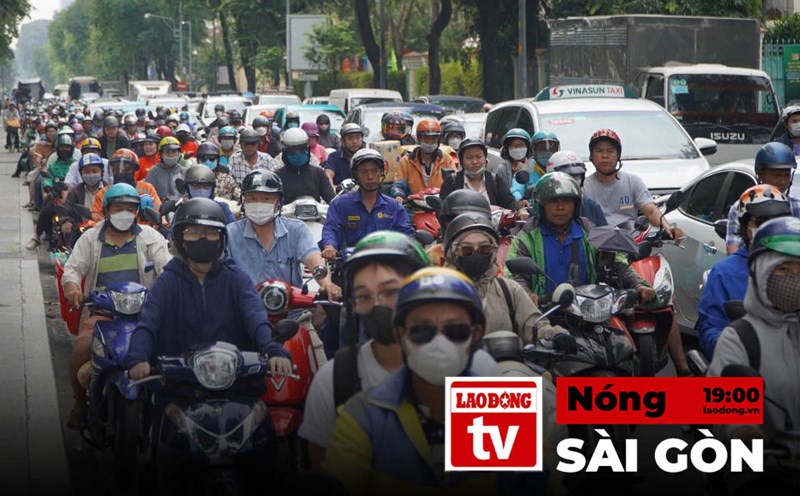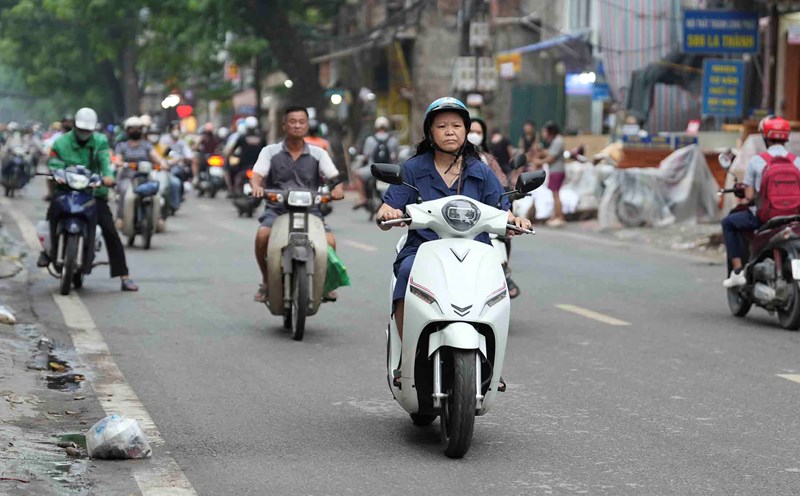Financial support for people to convert to electric vehicles
The Prime Minister issued a directive on urgent tasks to address environmental pollution.
The Directive requires Hanoi to implement solutions so that from July 1, 2026, there will be no more fossil fuel motorbikes (gasoline vehicles) circulating in the Ring Road 1 area.
The next roadmap is set as follows: From January 1, 2028, private cars using fossil fuels in Ring Road 1 and Ring Road 2 will be restricted. By 2030, the above regulation will be applied to all personal vehicles using fossil fuels within Ring Road 3.
Dr. Khuong Kim Tao, former Deputy Chief of Office of the National Traffic Safety Committee, commented: "To implement the determination to replace gasoline vehicles, we need proactiveness from ministries, branches and relevant agencies, especially specific financial solutions".
According to him, the State may consider supporting a part of the cost of buying electric vehicles. This is a support level to promote people to convert, while reducing the initial cost burden. The beneficiaries are millions of people living and working in the city center, where motorbikes are the main means of livelihood, study and travel.
However, policies need to be designed transparently, with clear criteria to ensure fairness. For example, it is necessary to prioritize low-income people, freelance workers or workers - groups that often rely entirely on motorbikes for work. At the same time, it is necessary to combine support with communication and propaganda about the long-term benefits of electric vehicles, both environmentally and economically.
Developing public transport infrastructure
In addition to direct support, a prerequisite for the successful conversion of gasoline vehicles is the development of public transport infrastructure. Limiting gasoline motorbikes will only be really effective if people have the option to replace them feasibly, conveniently and within their budget.
Dr. Hoang Duong Tung said: "The development of the electric bus, train and other public transportation system needs to be accelerated so that people have more options".
According to the capital's transport planning until 2030, with a vision to 2050, Ring Road 1 - a 15km long artery route - is the first area to ban gasoline motorbikes. This is a densely populated area, with many administrative agencies, schools, hospitals, commercial areas, etc. The restriction of private vehicles here further highlights the role of the high-quality public transport system.
According to experts, Hanoi needs to invest synchronously in infrastructure: Expanding electric bus routes, developing metro networks, planning parking lots, shuttle stations and especially electric vehicle charging stations that are reasonably distributed in the inner city. With the forecast of hundreds of thousands of electric vehicles circulating in the area where gasoline vehicles are banned, the electricity industry must calculate and ensure the ability to supply electricity, including production, transmission and distribution systems to charging stations.
It is impossible not to mention the role of private enterprises in this process. They can participate in both the supply of electric vehicles and the construction of charging station infrastructure. The State needs to create a favorable legal corridor, while mobilizing the participation of the banking system and credit funds to support capital for businesses to invest in this relatively new field.
Converting to gasoline vehicles is not simply changing vehicles. That is a comprehensive change in the way urban areas are organized and operated. It is necessary to recognize this as a great opportunity to restructure traffic, reduce congestion, improve air quality and move towards sustainable city development. However, to take advantage of this opportunity, the policy must be both in the right direction and put into practice - that is, it must concern vehicles, infrastructure, electricity to people's lives.
The decision to convert gasoline motorbikes is not only a policy, but also a strong affirmation that: Vietnam is ready to act for a green, clean and civilized future. To realize that, we need the cooperation of the State, businesses and most importantly - the consensus and support of the people. They will be the center and also the force that determines the success or failure of this challenging but also high-profile transition.











